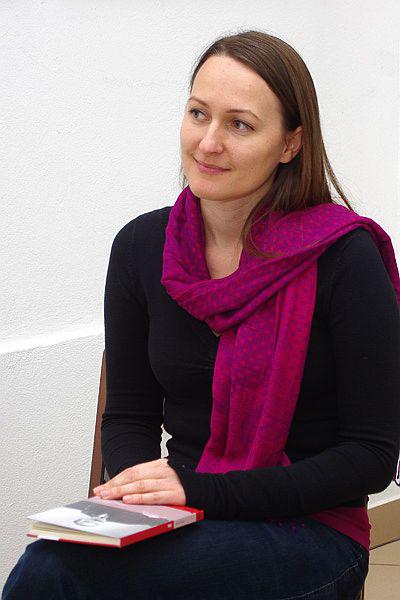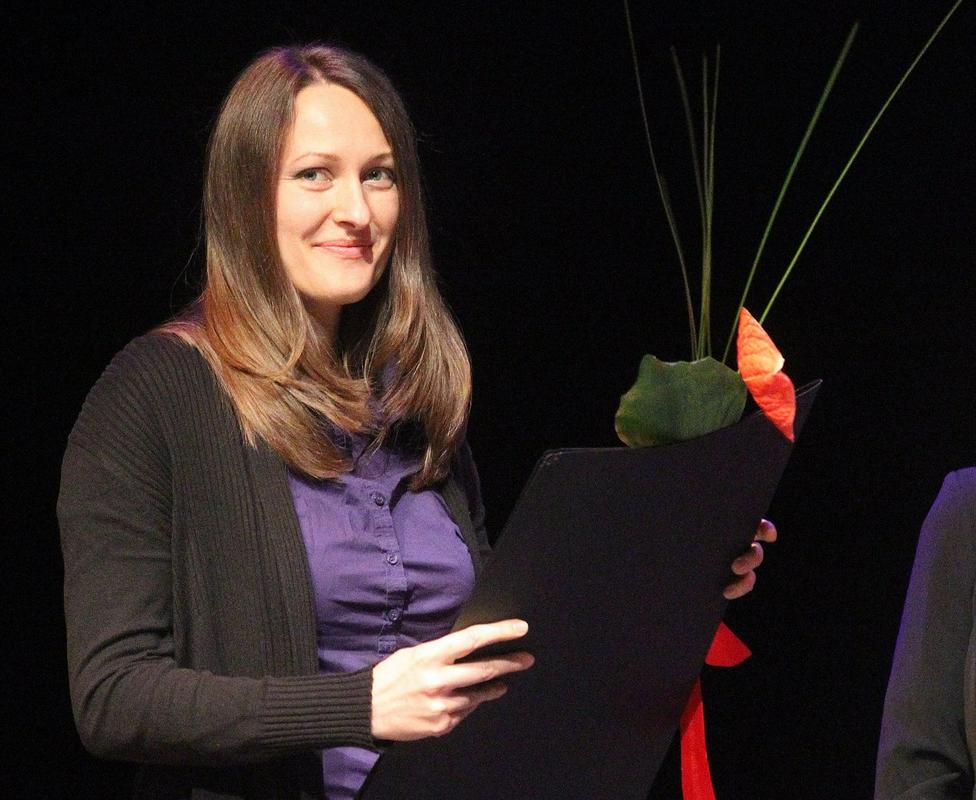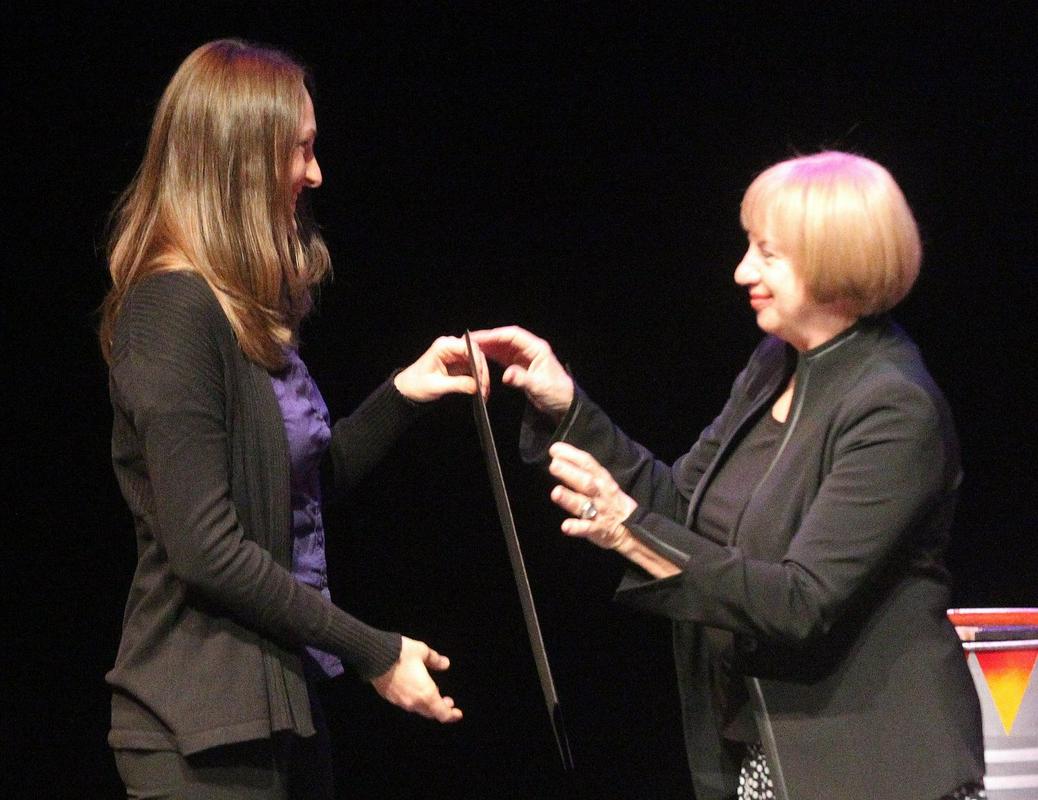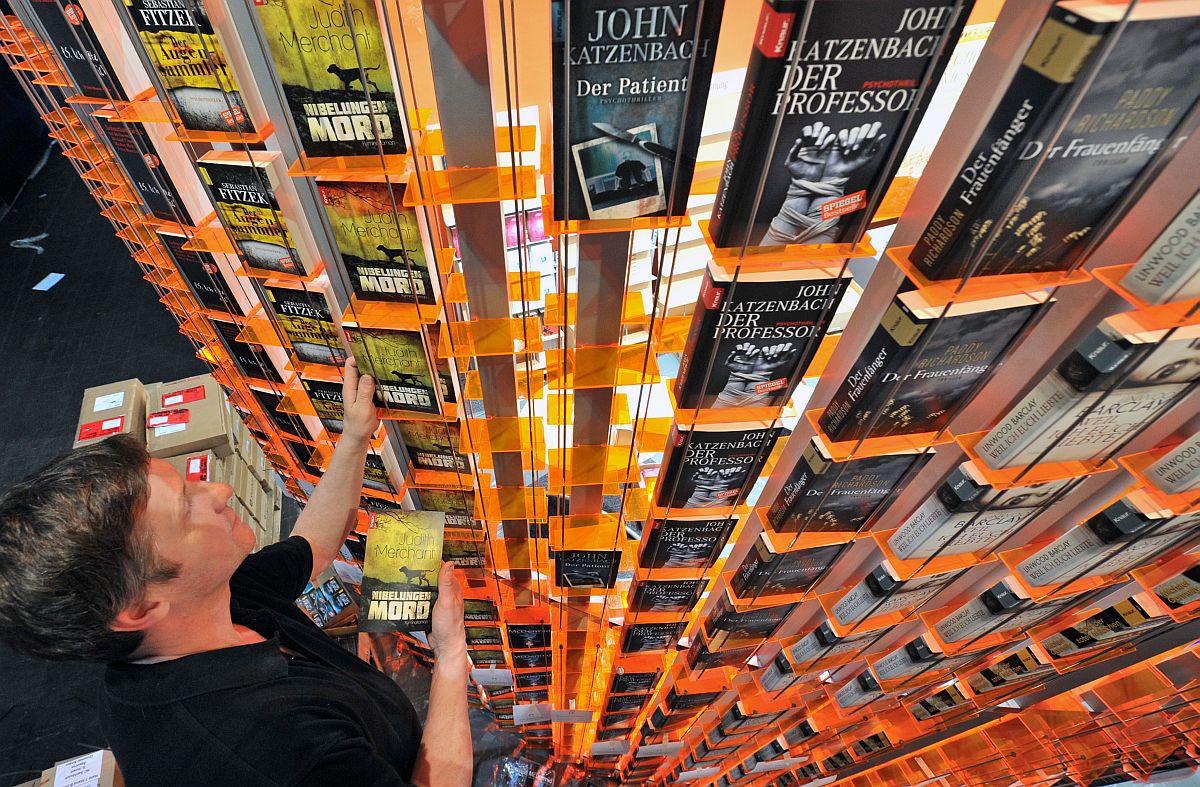


It’s understandable that critics who perhaps don’t have experience in translating or aren’t fluent in the source language to the extent where they could do a parallel study of the translation and the original (which on top of all also demands a much greater time investment), won’t explicitly comment on the translator’s decisions or assess the quality of the translation.

Ana Jasmina Oseban received the Radojka Vrančič Award for young translators at the Ljubljana book fair in November 2013. The selection jury was impressed by her translation of Blumenberg, a fictional biographical novel about the German philosopher Hans Blumenberg written by Sybille Lewitscharoff.
Ms Oseban primarily works as a translator of modern prose and poetry from German into Slovenian, but also translates from English and Croatian. Through her translations she has introduced some of the greatest writers from the German-speaking world, such as and Sten Nadolny to the Slovenian readership.
MMC has talked to her about the challenges, disadvantages and status of translating in the society. You’re kindly invited to read a part of the interview below.
Young Slovenian translators who have just graduated probably don’t have the world waiting at their feet. How does one find the chance to establish oneself as a translator, especially those specialized in languages such as German and English where the competition is fierce?
In principle literary translation is a solitary activity, but it comprises a lot of cooperation with editors, copy editors and sometimes also experts in different areas of expertise. There are also a lot of opportunities to exchange experience with colleagues at various symposiums, translators’ meetings and organized evening discussions.
As in any other profession, one meets colleagues and co-workers who have a lot of experience in literary translation, and there are plenty of opportunities to learn from “old hands”, which gives you additional motivation to develop one’s own skills and to improve one’s own work.
When the love of literary translation takes hold of you and you get to make the first steps on this path, perhaps the most important thing is to never stop walking, to persist, despite all the hurdles seemingly nearly impossible to overcome and despite goals that appear impossible at first sight.
A well-known phrase in Italian says "traduttore, traditore". There are many theories in translation studies, but still: is it possible for a literary translation to be completely equal to the original? Isn’t it, by definition, destined to remain a mere “approximate” or a copy that lacks a bit of something?
When asked about this, I always think of the extraordinary translations of Shakespeare by Oton Župančič or the translations of classical authors by Anton Sovre – it seems they have passed the test of time and proved their quality. Of course this doesn’t mean that new translations of the same works or authors aren’t possible (in fact, there have been some new translations), but it indicates that the translations have become part of the culture of a nation and have almost reached a status fairly similar to the one the original holds in the culture of origin.
If these translations didn’t fulfil the aesthetic element and if they didn’t embody the spirit of the original, they would probably be long forgotten by now.
Do you ever feel that readers (or critics) who like a writer or a certain book sometimes completely forget that there’s an intermediary, a connecting link in the form of a translator, between them and the writer? Or is it the greatest virtue of a good translation precisely this – a fusion with the original?
I think we, the translators, are completely satisfied if critics respect our moral copyrights and credit us as authors of the translation when the author of the original is mentioned. This applies to critical reviews, printed excerpts from the book and discussions about the work, for example on TV or the radio.
Crediting the translator in the media or on the front cover, next to the author’s name, suffices in this sense; I don’t find it necessary for the translator to be more visible in this context. It’s understandable that critics who perhaps don’t have experience in translating or aren’t fluent in the source language to the extent where they could do a parallel study of the translation and the original (which on top of all also demands a much greater time investment), won’t explicitly comment on the translator’s decisions or assess the quality of the translation. Translation criticism deals with the latter, but it’s still not very well developed in Slovenia.
Usually readers don’t become aware of the fact that they’re reading a translation until they come across something that bothers them. When a text fails to flow smoothly, they tend to attribute the responsibility to the translator rather than the clumsiness of a conscious decision of the author – but that isn’t necessarily true. When the original is intentionally made hard to read, readers of the translation should have a similar reading experience. When a translation is too “polished”, the reader may like it, but it won’t reflect the characteristics of the original. Yet, after all, the assessment of a translation as good or bad depends on the predominant translation norms in a particular linguistic environment.
Can all works be translated? Have you ever come across a proposal for a translation which you deemed to be a nut too hard to crack?
I believe that in essence any text can be translated. But it depends on the purpose of the translation and the type of the text. When the aesthetic value is of key importance, it needs to be estimated whether the compromises that one will be forced to make when translating can remain in the limits of the reasonable.
Sometimes the so-called “untranslationable” passages appear in the text, for example as a word play that functions very well in German but not in Slovenian. In these cases, a different solution needs to be found or perhaps compensate this “loss” that occurred in a certain passage with “and added value” in another passage, where the Slovenian language simply calls for a word play – if the text allows and supports this, of course.
It’s understandable that critics who perhaps don’t have experience in translating or aren’t fluent in the source language to the extent where they could do a parallel study of the translation and the original (which on top of all also demands a much greater time investment), won’t explicitly comment on the translator’s decisions or assess the quality of the translation.

































































